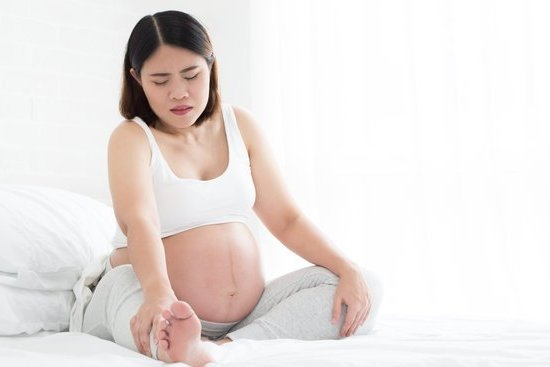It is well known that a healthy diet and lifestyle are important for overall health and well-being, and this is especially true when trying to conceive. There are a number of specific foods that are beneficial for boosting female fertility.
First and foremost, it is important to eat plenty of fruits and vegetables. colorful fruits and vegetables are high in antioxidants, which can help protect the body from damage and improve fertility. Some specific antioxidants that are beneficial for fertility include vitamins C and E, beta-carotene, and lutein.
Another important part of a fertility-friendly diet is ensuring that you are getting enough healthy protein. Protein is essential for hormone production and reproductive health. Good sources of healthy protein include fish, poultry, nuts, and legumes.
In addition to eating a healthy diet, it is also important to stay hydrated. Drinking plenty of fluids helps to keep the body healthy and functioning properly. Water is especially important, as dehydration can have a negative impact on fertility.
Finally, it is important to avoid certain foods that can be harmful to fertility. Foods that are high in saturated fat, caffeine, and artificial sweeteners can all be harmful to reproductive health. It is best to avoid or limit these foods when trying to conceive.
Following a healthy diet and lifestyle is important for both male and female fertility. By incorporating the above tips into your daily routine, you can help boost your chances of conceiving naturally.
Foods To Increase Fertility In Females
There are many different factors that go in to whether or not a woman is able to conceive. One of the most important factors, however, is the woman’s diet. A woman who wants to increase her fertility needs to make sure that she is eating the right foods.
Some of the best foods to eat if you are trying to conceive are:
-Fruits and vegetables: Eating plenty of fruits and vegetables is important for overall health and can also help to increase fertility. Fruits and vegetables are packed with antioxidants, vitamins, and minerals that are essential for a healthy pregnancy.
-Lean protein: Protein is important for conception because it helps to build muscle and tissues. Lean protein sources such as fish, chicken, and turkey are all good choices.
-Whole grains: Whole grains are a good source of fiber, vitamins, and minerals. They also help to regulate blood sugar levels, which can be important for fertility.
-Healthy fats: Fat is an essential part of a healthy diet, but it is important to choose healthy fats such as Omega-3 fatty acids. Omega-3 fatty acids are beneficial for overall health and can help to improve fertility.
-Water: Staying hydrated is important for overall health and can also help to improve fertility. Drink plenty of water each day to help keep your body healthy and optimally functioning.
In addition to eating the right foods, it is also important to avoid foods that can harm fertility. Some of the worst foods for fertility are:
-Sugar: Consuming too much sugar can cause blood sugar levels to fluctuate and can lead to problems with fertility.
-Processed foods: Processed foods are unhealthy and can also be harmful to fertility. They are packed with unhealthy ingredients and chemicals that can be harmful to the body.
-Alcohol: Alcohol can be harmful to fertility and can also cause problems with fetal development. It is best to avoid alcohol if you are trying to conceive.
-Caffeine: Caffeine can also be harmful to fertility. It is best to avoid caffeine if you are trying to conceive or are pregnant.
Following a healthy diet is an important part of improving fertility. Eating the right foods can help to optimize your health and increase your chances of conceiving.
Cbd And Female Fertility
CBD oil is becoming a popular wellness product, and many people are using it to improve their health. Some people are using CBD oil to improve fertility, and there is some evidence that it may be helpful.
CBD oil is a type of cannabinoid oil that is derived from cannabis or hemp. CBD oil is not psychoactive, and it does not get you high. CBD oil has been shown to have a number of health benefits, including reducing inflammation, managing pain, and improving mood.
CBD oil may also help improve fertility. A small study published in 2018 found that women who took CBD oil for two months had a higher chance of getting pregnant than women who did not take CBD oil. The study was small, and more research is needed to confirm these findings.
CBD oil is available in a variety of forms, including tinctures, capsules, and topical products. It is also possible to buy CBD oil online. If you are thinking about using CBD oil to improve your fertility, talk to your doctor to make sure it is safe for you to do so.
How Female Fertility Test Is Done
The female fertility test is a series of tests that help to determine whether or not a woman is able to conceive a child. The tests can also help to identify any potential problems that may exist with the woman’s fertility. There are a number of different tests that may be used as part of the fertility evaluation, and the specific tests that are used will vary from woman to woman.
The first step in the female fertility test is usually a physical exam. This exam can help to identify any physical problems that may be affecting the woman’s fertility. The doctor may also order some lab tests at this time. The lab tests may include a blood test to check hormone levels, a test to check the woman’s ovarian function, and a test to check the woman’s egg quality.
If the woman is over the age of 35, the doctor may also order a test to check the woman’s chromosomal health. This test is called a karyotype. A karyotype can help to identify any chromosomal abnormalities that may be affecting the woman’s ability to conceive.
If the woman is unable to conceive after a year of trying, the doctor may recommend additional tests. These tests may include a test to check the woman’s fallopian tubes, a test to check the man’s sperm, or a test to check the woman’s uterus.
Fertility Blood Tests For Females
One of the most important tests a woman can take to assess her fertility is a fertility blood test. This test can help a woman and her doctor determine whether she is ovulating regularly and whether her hormone levels are normal.
There are a few different types of fertility blood tests that a woman can take, but the most common one is the follicle-stimulating hormone (FSH) test. This test measures the amount of FSH in a woman’s blood. FSH is a hormone that is released by the pituitary gland in the brain. This hormone is responsible for stimulating the growth of eggs in the ovaries.
A high level of FSH in a woman’s blood can indicate that she is not ovulating regularly. This can be a sign that she is experiencing fertility problems. A low level of FSH, on the other hand, can indicate that the woman is ovulating regularly and is not experiencing any fertility problems.
Other fertility blood tests that a woman can take include the estradiol test and the prolactin test. The estradiol test measures the amount of estradiol in a woman’s blood. Estradiol is a hormone that is responsible for the development of eggs in the ovaries. A high level of estradiol can indicate that the woman is not ovulating regularly. A low level of estradiol, on the other hand, can indicate that the woman is ovulating regularly.
The prolactin test measures the amount of prolactin in a woman’s blood. Prolactin is a hormone that is responsible for the production of breast milk. A high level of prolactin can indicate that the woman is not ovulating regularly. A low level of prolactin, on the other hand, can indicate that the woman is ovulating regularly.

Welcome to my fertility blog. This is a space where I will be sharing my experiences as I navigate through the world of fertility treatments, as well as provide information and resources about fertility and pregnancy.





